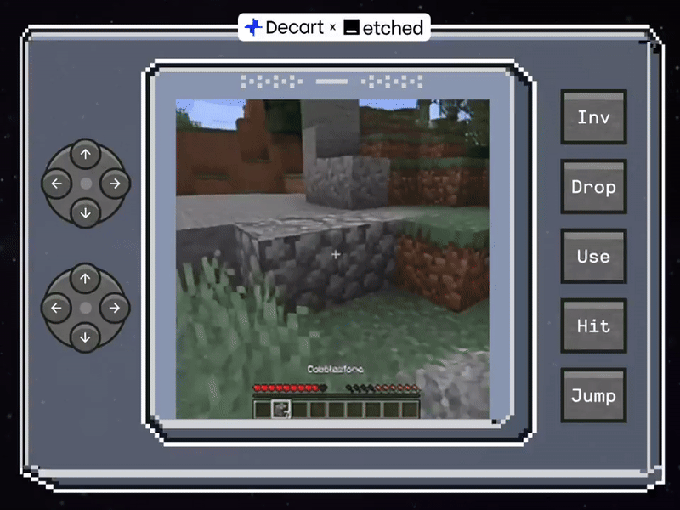Search for ChatGPT, AI Simulates Minecraft, and Musk Spent $10B on AI Training
PLUS HOT AI Tools & Tutorials
Hello and welcome to our weekly roundup!
Today's digest was assembled with the support of Search for ChatGPT, the latest release of OpenAI, which is already available to everyone. Honestly, it was quite fun but not as smooth as I had hoped. But about that and much more below.
Let's discuss!
October proved to be a busy month for AI startups that raised funding. If you missed the most important deals, follow this post:
This Creators’ AI Edition:
Featured Materials 🎟️
News of the week 🌍
Useful tools ⚒️
Weekly Guides 📕
AI Meme of the Week 🤡
AI Tweet of the Week 🐦
(Bonus) Materials 🎁
Your advertisement could be featured here!
Sponsor a spot in our newsletter to connect with subscribers interested in AI, technology, and startups. For inquiries, click the button below.
Featured Material 🎟️
Search for ChatGPT
OpenAI announced the launch of ChatGPT Search. This feature works as part of ChatGPT and turns the chatbot into a search engine. The update is already available for ChatGPT Plus and Team subscribers on the official ChatGPT website, as well as on desktop and mobile apps. Enterprise and Edu users will get access in the next few weeks, while free users can test the new feature in the coming months.
After the release, Sam Altman posted on X that the update provides a better experience if you set ChatGPT as the primary search engine. OpenAI has built a special extension for this purpose. Once you install it, all queries in the address bar will launch ChatGPT, and the model will work as a default search engine. But that's only part of the update: ChatGPT has also been adapted for new tasks.
OpenAI says that ChatGPT now searches for information much better than before. You get faster answers with links to relevant sources, and results are displayed in a more user-friendly format. For example, ChatGPT displays several images and structured text in short paragraphs if you ask to show how to improve your backyard.
In addition, a source sidebar is displayed next to the answer, allowing you to view a list of websites used to generate it. This is useful for those who want to get more information or check the quality of the AI's work.
OpenAI also noted that the company works closely with partners whose data is used in the search engine. The list of partnered media outlets includes Hearst, Condé Nast, Axel Springer, News Corp, and others. Any publisher can also opt out of the OpenAI Web Crawler.
Keep your mailbox updated with key knowledge & news from the AI industry
First Impressions
I won't waste much of your time right now. This release deserves a separate post.
At first, ChatGPT Search creates a pleasant experience. Especially at the stage when you run those first non-committal tests: “Show me the weather forecast,” “Find me information about [a famous brand name],” and “the latest news about the election race.” However, when you dive into more practical tasks, some problems show up.
Currently, ChatGPT Search doesn't work well with the most up-to-date news (the developers recognize this). For example, if you are looking for a tiny startup that has just emerged from stealth mode, the AI may confuse it with another company with the same name. And it's a bit annoying.
I have to admit that this is only a beta version, and OpenAI will actively improve its search engine in the coming months. And soon, I have no doubt we'll end up with another real Google competitor (in addition to Perplexity).
News Of The Week 🌍
Decart's AI Model Simulates Playable Minecraft
A cool demo from a not-so-popular startup. Decart AI has shown an Oasis model that simulates Minecraft. And I'm not talking about code generation: it’s a platform that creates a replica of the popular game in real time. The AI senses keyboard and mouse clicks and sequentially generates frames to mimic the game's physics, graphics, and rules. Concurrent with the introduction of Oasis, Decart AI raised $21M from Sequoia and Oren Zeev.
Here's what Oasis' performance looks like in action:
For me personally, the Oasis demo is the most exciting thing to happen this week (and maybe in the last month), even considering Search for ChatGPT. We don't often see new AI use cases, and this is definitely one of them. Plus, going forward, this approach will open up huge opportunities for game designers worldwide.
OpenAI Builds Own AI Chip with TSMC and Broadcom
According to anonymous Reuters sources, OpenAI has partnered with TSMC and Broadcom to build its own AI-focused chips. Initially, the company even planned to build its own production line, but it later abandoned the idea due to too high costs. OpenAI is now designing the new platform, and the development team includes engineers who previously worked on Tensor Processing Units (TPUs) at Google, including Thomas Norrie and Richard Ho.
The performance of the future chip is still unknown. However, it is clear that with it, OpenAI will have a good advantage over its competitors: the startup will not suffer due to increased demand for other companies' processes.
Gemini API and AI Studio Now Support Google Search
Google recently launched Grounding with Google Search in Google AI Studio and Gemini API. This update allows developers to get more up-to-date answers from Gemini models using Google Search. In addition to more accurate answers, the model now returns grounding sources (embedded helper links) and search suggestions that direct users to search results that match a reasonable answer.
As before, you can try grounding for free in AI Studio, which is essentially Google's OpenAI Playground counterpart. As for the paid version, Gemini API users must upgrade to the paid tier and pay $35 per 1,000 grounded queries.
Sharing is caring! Refer someone who recently started a learning journey in AI. Make them more productive and earn rewards!
Anthropic Releases Claude Desktop App and Dictation Support
The Claude model now has its own desktop app. Anthropic recently launched beta versions for macOS and Windows. The apps are available for both free Claude users and those who subscribe to Anthropic's premium plans. That said, the recently announced “computer use” service is not part of the new apps.
By the way, we have a separate post dedicated to computer use:
The company has also launched a dictation tool for Claude. iOS and Android users can now record and upload audio messages up to 10 minutes long. The AI will transcribe the requests and then respond to them in real-time.
Claude itself has not yet learned how to use voice.
Elon Musk Spent $10B on AI Training Hardware
According to Tesla investor Sawyer Merritt, by the end of this year, Elon Musk's companies, Tesla and xAI, will have spent about $10 billion on hardware to train AI models. The electric car maker has already deployed and is training a cluster of 29,000 Nvidia H100s in Giga, Texas, and will soon have a total capacity of 50,000 H100s. Tesla is also using the Colossus supercomputer, which was unveiled in September.
As for xAI, the startup has already begun assembling the Memphis supercomputer of its Gigafactory of Compute, located at the old Electrolux manufacturing facility in Memphis, Tennessee.
Musk is clearly betting big on his AI projects. He recently claimed Memphis is “the world's most powerful AI training cluster” as it runs on 100,000 Nvidia H100 GPUs. According to Musk, the capacity should be doubled soon.
Microsoft's Github Partners with Anthropic and Google
Microsoft-owned GitHub has agreed to integrate AI models from Anthropic and Google into a coding assistant used by millions of software developers. At its Universe conference, GitHub said users will soon be able to use Google's Gemini and Anthropic's Claude 3.5 Sonnet to communicate and ask questions. In the future, the models will be incorporated into the main part of GitHub's Copilot assistant, which can output code with a few simple hints.
So Google and Anthropic's models will join OpenAI's o1-preview and o1-mini. Do you think this means that the relationship between Microsoft and OpenAI is no longer so warm and exclusive?
Useful Tools ⚒️
Laminar – Open-source all-in-one platform for engineering AI products
Langtail 1.0 – The low-code platform for testing AI apps
OmniGen – AI Image Generator with Consistent visuals
Wikiwand – Streamline Wikipedia knowledge and answer your questions
Sourcely – Find academic sources with AI
Sourcely is a great platform for those who work a lot with serious data or occasionally need to confirm facts. Sourcely provides access to over 200M research papers, offering a service for finding, summarizing, and integrating credible academic sources into projects. If you are an entrepreneur who prepares pitches for investors, a researcher, a journalist or just an enthusiast, you should clearly keep this tool at your fingertips.
Share this post with friends, especially those interested in AI stories!
Weekly Guides 📕
Midjourney AI Tutorial: How to Use Midjourney to Create Stunning Art
How to Generate 90 YouTube Shorts in 30 Minutes Using AI
How to use Cursor AI for iOS App Development (5 Techniques)
Learn Voice AI In 15 Minutes (Beginner Guide)
How to build an AI search engine (OSS Perplexity Clone)
AI Meme Of The Week 🤡
It seems Google deserves to lead the resistance.
AI Tweet Of The Week
You should definitely check out @sama's recent posts on X.
He's thrilled with Search for ChatGPT!
(Bonus) Materials 🏆
The AI for Work Top 100: October 2024
Bill Gates on possibility, AI, and humanity
Elon Musk on AI, Birthrates, Robots and Mars Missions
5 ways AI can reduce customer support tickets
Building the Agentic Future Together
Share this edition with your friends!









